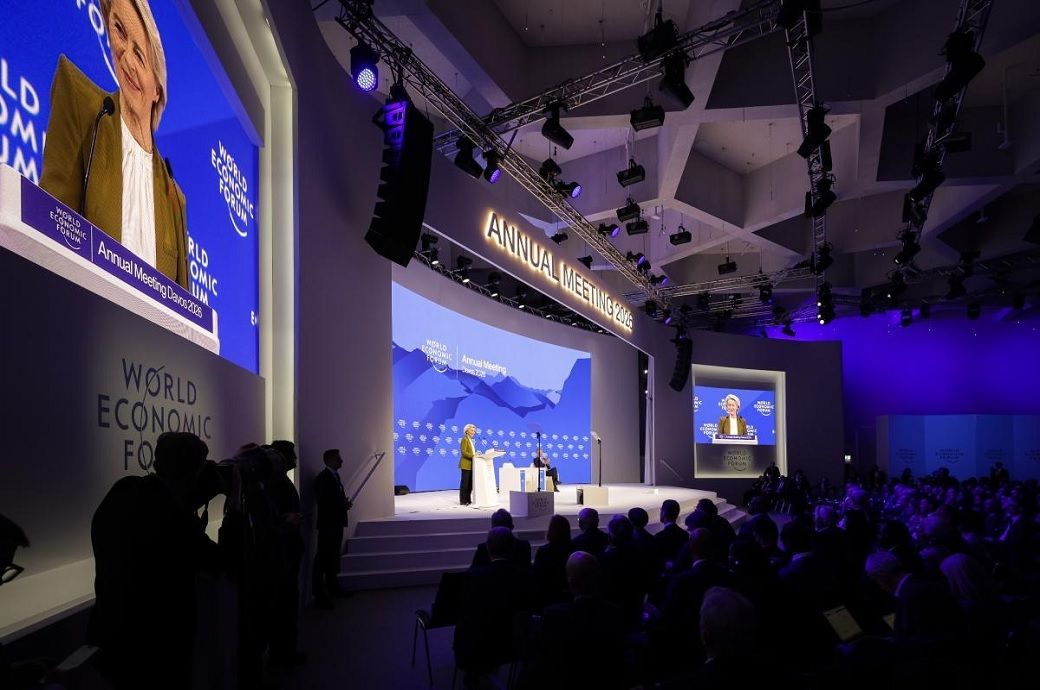Fashion
LVMH explores sale of its 50% stake in Rihanna-backed Fenty Beauty, sources say

By
Reuters
Published
October 21, 2025
Luxury goods giant LVMH is exploring a sale of its 50% stake in Fenty Beauty, which it co-owns with Grammy Award-winning singer and entrepreneur Rihanna, according to four people familiar with the matter.
The company is working with investment bank Evercore on the sale, three of the people said. All four asked not to be identified because the process is confidential.
In 2017, Rihanna, whose full name is Robyn Rihanna Fenty, launched Fenty Beauty with the help of Kendo Brands, LVMH’s in-house beauty incubator. She and LVMH each own half of the company, sources said.
LVMH and Evercore declined to comment. Fenty Beauty and representatives for Rihanna did not immediately return requests for comment.
Fenty Beauty, which generated around $450 million of net sales in 2024, could be valued at somewhere between $1 billion to $2 billion, two of the people said.
Barbados-born Rihanna, who also owns lingerie brand Savage X Fenty, started Fenty Beauty to create a makeup line that works for a wider range of skin tones and types, including Black, Hispanic and Asian women. The products, which include makeup, skincare, haircare and fragrance, are sold in Sephora and on Amazon.
Elf Beauty bought Hailey Bieber’s company Rhode for $1 billion earlier this year.
© Thomson Reuters 2025 All rights reserved.
Fashion
Italy’s OTB Group appoints Andrea Rigogliosi to lead Diesel

“Diesel is a magical brand, which I founded, and that has always represented a unique force in the fashion landscape. Glenn Martens’ creative direction has transformed it, rediscovering its most authentic DNA and making the brand fresher, more contemporary, and increasingly loved by younger generations. Today, Diesel can be considered the only alternative to the luxury world, embodying values such as inclusivity and accessibility—particularly significant in a complex moment for the entire fashion industry. Recently, I have closely followed the brand’s development with a team of managers, while we navigated a challenging market phase. I am delighted to welcome Andrea to Diesel, and, together with the team, I am sure that he will further enhance Diesel’s potential at a crucial stage in the brand’s evolution,” stated Renzo Rosso, founder of Diesel and Chairman of the OTB Group.
Diesel, part of the OTB Group, has named Andrea Rigogliosi as its new CEO, reporting to Group CEO Ubaldo Minelli.
Rigogliosi brings extensive international leadership experience from roles at Miu Miu (Prada Group), Fendi and Christian Dior Couture.
He is expected to strengthen Diesel’s global growth and commercial strategy under Glenn Martens’ creative direction.
Andrea Rigogliosi brings solid international leadership experience in the luxury, fashion, and retail sectors, having held high-level strategic and commercial roles across Europe. Before joining Diesel, he served as Global Head of Retail and Commercial at Miu Miu – Prada Group, leading global business growth and the expansion of the distribution network. Rigogliosi held key positions within the LVMH Group, including President Europe at Fendi, General Manager France & Monaco and General Manager Italy at Christian Dior Couture. Early in his career, he took on managerial roles at Poltrona Frau Group and L’Oréal Luxury Products.
He holds a degree in International Business Administration from Bocconi University in Milan.
Note: The headline, insights, and image of this press release may have been refined by the Fibre2Fashion staff; the rest of the content remains unchanged.
Fibre2Fashion News Desk (RM)
Fashion
Philippines announces ‘flexible financing’ for garment manufacturers

Trade and industry secretary Cristina A Roque said foreign buyers told her automation is no longer optional, but has turned a baseline requirement globally.
The Philippines will provide ‘flexible financing’ to domestic garment manufacturers for automation, machinery and production equipment to make them more competitive in the global market.
Incentives under the DTI’s Board of Investments will support mechanised and digital garment production, while the Philippine Economic Zone Authority will offer a comprehensive package for export-oriented garment firms.
“They expressed a clear preference for exporters with modern, automated production equipment, as short lead time is now the deciding factor, especially for fast-fashion brands,” Roque was cited as telling a recent meeting with garments manufacturers by a domestic media outlet.
Therefore, the department will work with institutions like the Land Bank of the Philippines and the Development Bank of the Philippines to provide flexible financing, she said.
Incentives under the DTI’s Board of Investments will support mechanised and digital garment production, while the Philippine Economic Zone Authority’s (PEZA) incentives will offer a comprehensive package of fiscal and non-fiscal support for export-oriented garment firms located within PEZA special economic zones, she said.
The department will also study proposals by the domestic garment industry aimed at enhancing overall cost competitiveness, including potential reductions in value-added tax rates to levels comparable to those of ASEAN peers and expanded fiscal support for existing firms and subsidiaries.
Fibre2Fashion (DS)
Fashion
Ursula von der Leyen calls India–EU FTA the ‘mother of all deals’

“And right after Davos, the next weekend, I will travel to India. There is still work to do, but we are on the cusp of a historic trade agreement,” she said, adding that “some call it the mother of all deals.”
EU-India talks are reaching a momentous phase, indicated European Commission President Ursula von der Leyen while addressing the World Economic Forum.
“And right after Davos, the next weekend, I will travel to India….we are on the cusp of a historic trade agreement,” she said, adding that “some call it the mother of all deals.”
The FTA talks began in 2007, were abandoned in 2013 and restarted in 2022.
As the EU is committed to de-risking its economy and diversifying supply chains by deepening ties with the world’s major growth centres, she saw the planned India-EU free trade agreement (FTA) as part of Europe’s broader strategy to champion “fair trade over tariffs, partnership over isolation, sustainability over exploitation”.
The FTA would create a combined market of around two billion people and account for nearly a quarter of global gross domestic product (GDP), giving European companies a crucial first-mover advantage in one of the world’s fastest-growing regions, she said.
“Europe wants to do business with the growth centres of today and the economic powerhouses of this century, from Latin America to the Indo-Pacific and far beyond,” she said.
A recent statement by India’s Ministry of External Affairs said European Council President Antonio Luis Santos da Costa and von der Leyen will be on a state visit to India from January 25 to 27. The two will be the chief guests at India’s 77th Republic Day celebrations. The European leaders will also co-chair the 16th India-EU Summit with Prime Minister Modi on January 27.
Negotiations for the planned FTA first began in 2007, and abandoned in 2013. Talks were re-launched in July 2022.
Fibre2Fashion (DS)
-

 Tech1 week ago
Tech1 week agoNew Proposed Legislation Would Let Self-Driving Cars Operate in New York State
-

 Entertainment1 week ago
Entertainment1 week agoX (formerly Twitter) recovers after brief global outage affects thousands
-

 Politics5 days ago
Politics5 days agoSaudi King Salman leaves hospital after medical tests
-

 Sports7 days ago
Sports7 days agoPak-Australia T20 series tickets sale to begin tomorrow – SUCH TV
-

 Business5 days ago
Business5 days agoTrump’s proposed ban on buying single-family homes introduces uncertainty for family offices
-

 Fashion5 days ago
Fashion5 days agoBangladesh, Nepal agree to fast-track proposed PTA
-

 Tech6 days ago
Tech6 days agoMeta’s Layoffs Leave Supernatural Fitness Users in Mourning
-

 Tech7 days ago
Tech7 days agoTwo Thinking Machines Lab Cofounders Are Leaving to Rejoin OpenAI


















